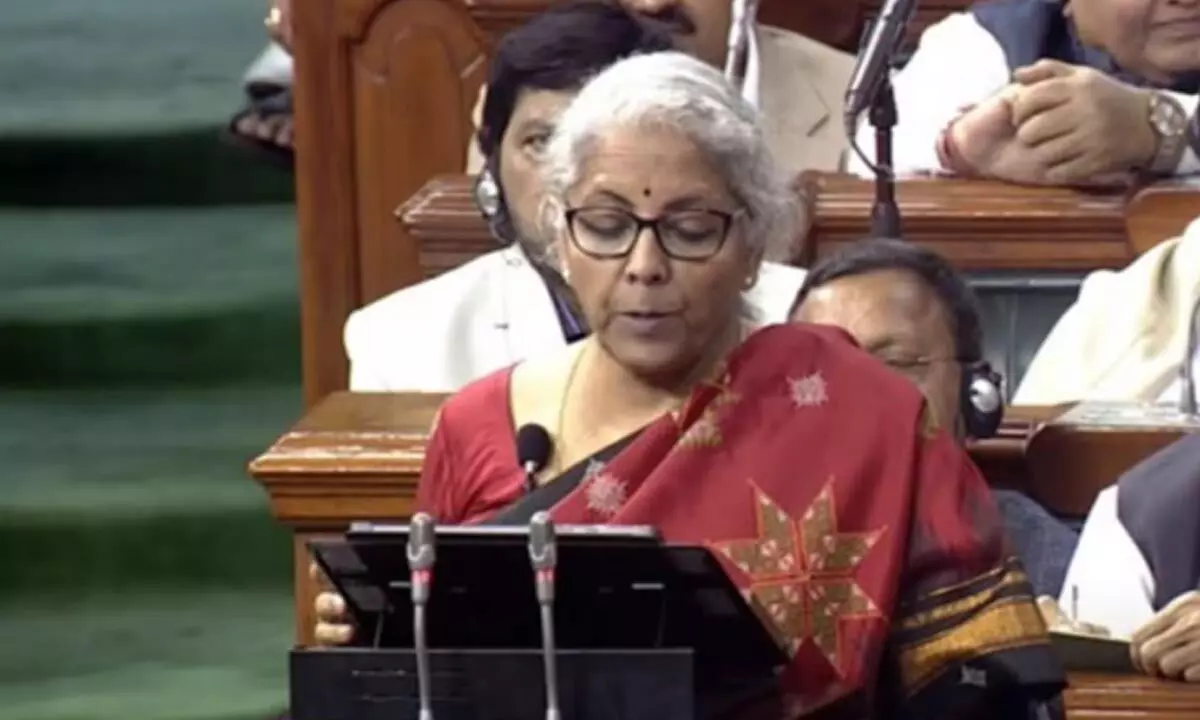With elections in air, populist Budget is loaded with sops
It is a development-oriented Budget as it doesn’t harm any sector. Rather, it has tried to improve wherever there was a scope for improvement. While providing higher outlay for capex, the Union Budget is bound to spur overall growth.
image for illustrative purpose

It is a development-oriented Budget as it doesn't harm any sector. Rather, it has tried to improve wherever there was a scope for improvement. While providing higher outlay for capex, the Union Budget is bound to spur overall growth.
It has attempted to address ease of doing business by reducing 39,000 compliances and making PAN as common identification of people. As a result of increased exemption limit and by reducing tax slabs to six from seven, the Budget seeks to make the individual taxpayers happier so that they have more disposable money to spend, which will also put the growth of the economy on a faster track. Moreover, it has effectively addressed concerns regarding environment by emphasising on green and renewable energy.
However, the only spot of bother is that more disposable will mean more expenditure on consumption. In the process, it may result in increase in inflation. Secondly, from where will the government bring in revenue to bridge the wide gap that is likely to be created by a host of sops, which have been declared in the Budget? The government needs to chalk out a roadmap to achieve this.
The banking sector in India has been a crucial part of the economy, playing a key role in driving financial inclusion and providing access to credit. The Union Budget is a crucial event that sets the tone for the financial sector, with its focus on reforms, measures to enhance competitiveness and increase financial inclusion.
The government has announced several measures that are aimed at strengthening the banking sector. This includes a 33 per cent increase in capital investment outlay to Rs 10 lakh crore, which would be 3.3 per cent of GDP. The FM targets a fiscal deficit of 5.9 per cent of GDP for 2023-24.
Certain amendments to Banking Regulation Act and Reserve Bank of India Act in order to improve bank governance and enhance investor's protection are being proposed.
KYC process will be simplified and PAN will be used as s common identifier for all digital systems of specified government agencies, which is expected to result in a stronger and more resilient banking sector. The per capita income has more than doubled to 1.97 lakh.
"Our economy rose from 10th to 5th and despite slowdown we saw 7 per cent growth," observed Nirmala Sitharaman.
The government also announced the refund scheme for failed MSMEs. All MSMEs with turnover of up to two crore rupees and certain professions with a turnover of up to Rs 50 lakh can avail the benefit of presumptive taxation.
The government has also announced plans to approve result-based finance to better allocate scarce resources for competing development needs. Financing of select schemes will be changed on a pilot basis from input-based to result-based.
Now, it has to be seen how far the government is able to ride on two boats simultaneously - giving a huge bunch of sops and mobilising the resources to meet them.

